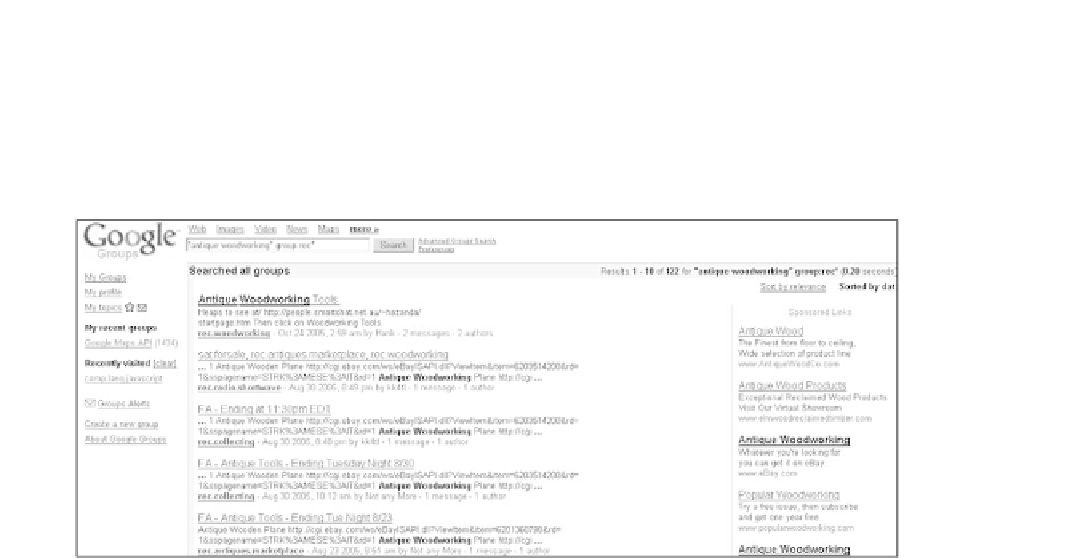Information Technology Reference
In-Depth Information
So what kind of results can you get for this? I got less than 125 results as of
this writing, but you won't be able to tell how recent the newest results are
until you go to the switch on the right and choose to sort by date instead of
by relevance (
Figure 9.7
).
Figure 9.7
one page of search results for this google groups query goes back several months.
Once you've done that, you can view the date of each posts—each post has a
date and time—and see how recently the newest post is, and how old the old-
est is. In this case you can see that
“antique woodworking”
isn't a particularly
busy search term and would make a good trap. Down at the very bottom of
the page is a signup form for e-mailed search alerts for Google Groups.
In addition to the group syntax, Google Groups ofers other special syntax
that you can use to narrow your search. Being familiar with Google search-
ing, you should be familiar with intitle, which is used to ind keywords in
the title. It works the same in Google Groups. Between that and the group
syntax, you should be able to narrow your searches quite a lot.
For most of your trapping needs, monitoring the entire Usenet or groups
of newsgroups should be suicient. But there will be times when you ind a
single group that has so much great information in it that you want to read
it exclusively. In these cases, you need to have a Google Groups account.

Search WWH ::

Custom Search